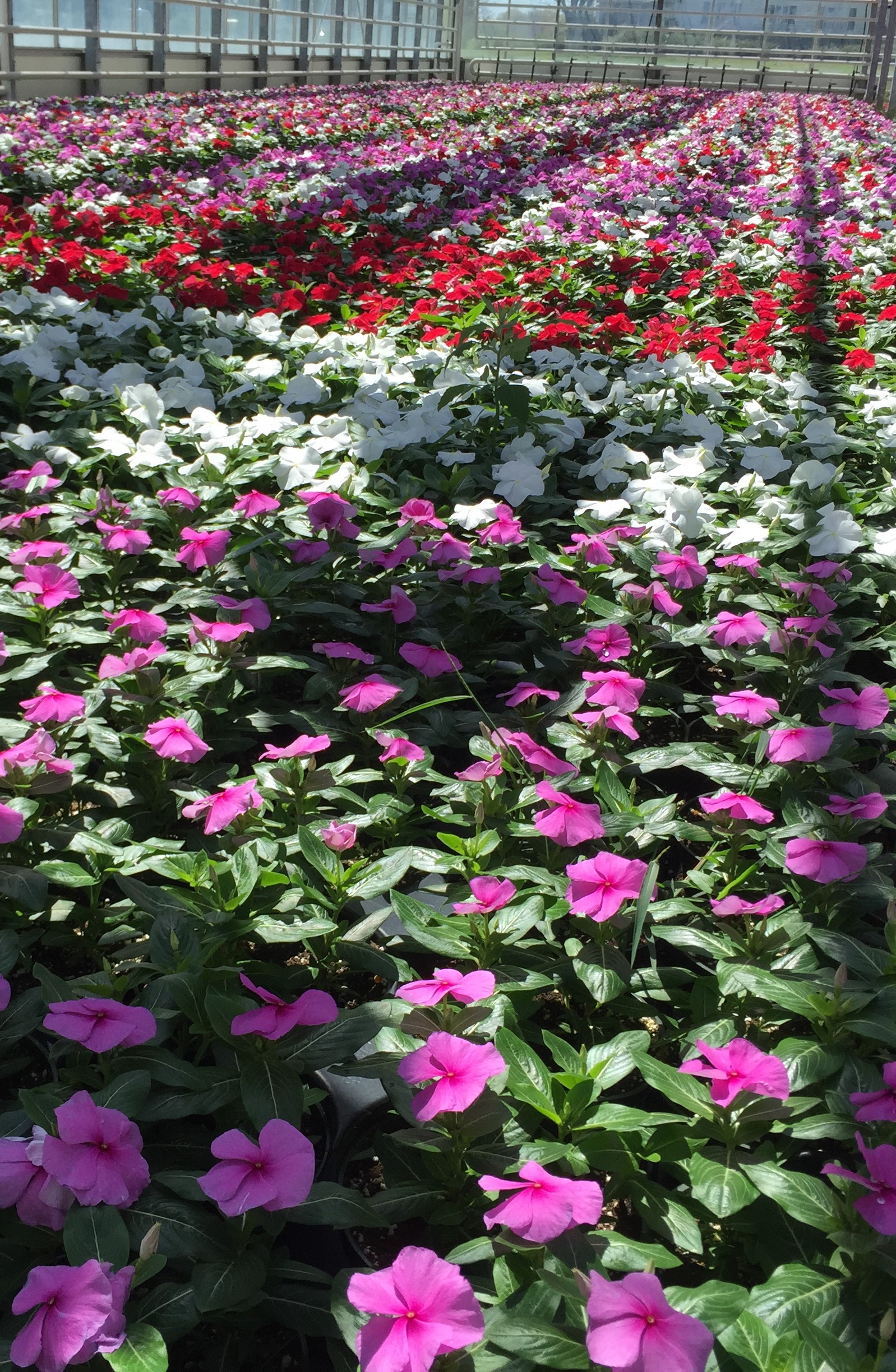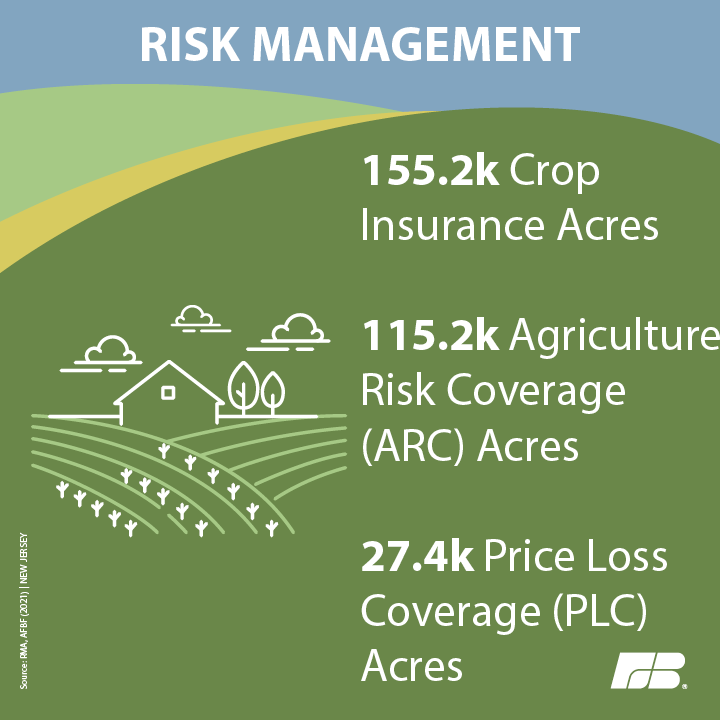Monthly Associate Newsletter – June 2024
17 Jun 2024, Posted by in Associates Newsletter
Dear Associate Members,
We’re thrilled to have you as part of our vibrant community here at the New Jersey Farm Bureau. As a valued associate member, you play a crucial role in supporting our mission to represent agricultural producers and enterprises across the state.
In this monthly newsletter, you’ll find a wealth of information to keep you informed about the latest developments in the farming industry, Farm Bureau activities, and initiatives. From policy updates to success stories from fellow farmers, we’ve got it all covered! Stay tuned for upcoming events, workshops, and opportunities to connect with fellow members. This newsletter is your gateway to valuable resources and a supportive network.
Thank you for being part of the New Jersey Farm Bureau family. We look forward to sharing knowledge, fostering community, and growing together.
Warm regards,
Allen
P.S. If you haven’t already, consider upgrading your participation level to “Full Membership” to take full advantage additional benefits—it pays to be a NJ Farm Bureau member!
It’s Fair Time!
County Fair season is just around the corner! These fairs offer livestock shows, tractors pulls, games, rides and all sorts of other family fun!
Click on any of the links below for more details about a county fair near you!
- Atlantic County 4-H Fair August 9 – August 10
- Burlington County Farm Fair July 16 – July 20
- Cape May County 4-H Fair July 18 – July 20
- Cumberland County Fair July 9 – July 13
- Gloucester County 4-H Fair July 25 – July 28
- Hunterdon County 4-H & Agricultural Fair August 21 – August 25
- Mercer County 4-H Fair July 27 – July 28
- Middlesex County Fair August 5 – August 11
- Monmouth County Fair July 24 – July 28
- Morris County 4-H Fair July 26 – July 28
- Ocean County Fair July 10 – July 14
- Salem County Fair August 6 – August 9
- Somerset County 4-H Fair August 7 – August 9
- Sussex County/New Jersey State Fair August 8 – August 10
- Warren County Farmers’ Fair & Hot Air Balloon Festival July 27 – August 3
Buy Fresh, Buy Local
It’s that time of year when so much Jersey Fresh produce is coming into season – including delicious and healthy blueberries! There are plenty of resources available to find what’s in season right now, and to help you find a farm market local to you. The Find Jersey Fresh website can be used to find farm markets, pick-your-own farms, CSAs, as well as on-farm breweries, wineries and distilleries.
Click here to find Jersey Fresh!
Heat Stress – Watch Out!
BY PETER J. FUREY, EXECUTIVE DIRECTOR
Most Farm Bureau members should have by now heard about the current subject of “heat stress.” The term can refer to high temperature summertime conditions related to a medical concern/general wellness meaning for all individuals. It now has political reference due to the introduction this spring of a controversial piece of legislation. For good measure, Mother Nature is blasting us in June with an intense heat wave, as if we needed a reminder about impacts of a higher heat “index.”
The new look at heat stress had its origin two years ago when labor advocacy groups issued warnings in media outlets. Some of those tried to link the weather impacts from climate change as an aggravating factor to these concerns. Also being targeted were the huge new warehouse operations such as Amazon supercenters, where it is alleged that high temperature working conditions push highly-regulated but well-paid workers too hard. In fact, advocates worry about indoor as well as outdoor heat conditions for workers. It was further alleged that existing state and federal (OSHA) regulations for heat stress were lacking.
Those articles may have been part of a concerted effort to seek state legislation that would somehow remedy the impacts to workers from summer heat. Indeed, a pair of state legislators (Sen. Joe Cryan, Asw. Annette Quijano-LD 20 , Union County) introduced highly aggressive bills that would be binding on all employers in the state to address these heat effects. It has prompted a huge outcry from the business community, especially when each bill was heard in the Labor Committee of each house during May.
Representatives of small business and large employers alike have three major objections: the temperature threshold of 80 degrees to trigger “protections” is too low; the mandates to be required of all covered businesses are onerous and unproven; and the penalty section for non-compliance is extreme. In short, it would have an enormous adverse impact for minimal, if any, benefit beyond that which is already provided by employers through common sense management practices. Many critics also said: where’s the documentation and studies to justify the bill?
Farm Bureau joined the common alliance that quickly developed to oppose this over-reach. The bills are still pending in the legislature with no definite timetable for further action. As one legislator put it: “these bills need a lot of work.”
The farm industry acknowledges the importance of safety programs to deal with heat stress, which is hardly a new situation for production agriculture. Farming has a need for labor in all conditions of raising crops and livestock. Advice normally comes from Cooperative Extension at Rutgers University, who have suggestions on heat stress. The leadership in agriculture has pledged to update labor management guidelines to deal with heat stress situations, as it provides an important role in society to raise food for the general public. It is calling for common sense and practical advice from its own advisors, rather than one-size-fits-all legislation in this important heat stress situation.
NJ Farm Bureau has compiled some heat stress prevention resources, to assist our members in keeping their employees safe. Click here for this list of resources.
Some Farm Bill Progress – More Work Still Needed
There’s been some recent activity on the 2024 farm bill, but significant work in both the House and Senate still needs to be made to get this legislation from bill to law.
The farm bill is a critical tool for ensuring our nation’s food supply remains secure. It is a multi-year piece of legislation that covers a variety of agricultural, conservation and nutrition programs. While it provides crucial support for farmers, in the form of things like price supports and crop insurance, the vast majority of farm bill spending is allocated for food and nutrition programs, to help those in need of assistance. Congress must extend the current farm bill, or adopt a new one before September of this year.
Last month, the House Agriculture Committee passed their version of the farm bill from committee. On the Senate side, Senate Ag Committee Chairwoman Debbie Stabenow released a “framework” for her version of the farm bill, which was recently countered by a framework version from Ranking Member Senator Boozman. There are significant difference between the two concepts for this important legislation.
AFBF President Zippy Duvall commented, “This is encouraging progress in the Senate, but there is much work to be done. There are stark differences between the two outlines and we urge Chairwoman Stabenow and Ranking Member Boozman to find common ground on the important issues that farmers and ranchers face. We urge the Senate Agriculture Committee to use these outlines to draft a bipartisan farm bill that updates the farm safety net and makes crop insurance more accessible, and to schedule a Committee markup soon. The farm bill benefits every family in America. They’re relying on Congress to get the job done.”
Click here for more information about the Farm Bill from the House Agriculture Committee.
Click here for more information about the Farm Bill from the Senate Agriculture Committee.
NEW JERSEY AG FACTS – FLORICULTURE
The 2023 value of NJ floriculture sales were $308 million, fifth highest in the U.S., according to Bruce Eklund, state statistician of the USDA’s National Ag Statistics Service, NJ Field Office. This production was from 275 growers, the nation’s fourteenth highest number of growers per state. For production in the open, NJ was third at 4,164 acres. New Jersey’s largest plant category is Bedding and Garden Plants at $184 million in sales.
The National Agricultural Statistics Service(NASS) is an agency within the United States Department of Agriculture (USDA). The agency’s primary responsibility is to prepare official estimates of agriculture for the nation, and for each state. There are 46 Field Offices that serve all 50 states, including Puerto Rico. USDA’s NASS New Jersey Field Office is operated in cooperation with the New Jersey Department of Agriculture.
Field Offices collect, verify, and analyze data which are used to prepare statistical estimates. Farmers, ranchers and agribusinesses are the grassroots source of information, collected through voluntary surveys conducted by each state Field Office throughout the year. Survey data are collected and summarized at the state level to provide statistical indications.




